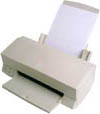The Infinitive Phrase
Recognize an infinitive phrase when you find one.
An infinitive phrase will begin with an infinitive (To + Simple Form of the Verb). It will include one or more objects and/or modifiers.
Here are examples:
To smash a spider
To kick the ball past the dazed goalie
To lick the grease from his shiny fingers despite the disapproving glances of his girlfriend Gloria
Infinitive phrases can function as nouns, adjectives, or adverbs.
Read these examples:
To finish her shift without spilling another hot pizza into a customer's lap is Michelle's only goal tonight.
To finish her shift without spilling another hot pizza into a customer's lap = noun (subject of the linking verb is).
Lakesha hopes to win the approval of her mother by switching her major from fine arts to pre-med.
To win the approval of her mother = noun (direct object for the action verb hopes).
The best way to survive Professor Peterson's boring history class is to stab your thigh with a sharp pencil if you catch yourself drifting off.
To survive Professor Peterson's boring history class = adjective (modifying way).
Kelvin, an aspiring comic book artist, is taking Anatomy and Physiology this semester to understand the interplay of muscle and bone in the human body.
To understand the interplay of muscle and bone in the human body = adverb (explaining why Kelvin is taking the class).
Punctuate an infinitive phrase correctly.
When an infinitive phrase introduces a main clause, separate the two sentence components with a comma.
Here is the pattern:
Infinitive Phrase + , + Main Clause.
Read this example:
To avoid burning another bag of popcorn, Brendan pressed his nose against the microwave door, sniffing suspiciously.
When an infinitive phrase breaks the flow of a main clause, use a comma both before and after the interrupter.
Here is the pattern:
Start of the Main Clause + , + Infinitive Phrase as Interrupter + , + End of the Main Clause.
Read this example:
Those basketball shoes, to be perfectly honest, do not complement the suit you are planning to wear to the interview.
When an infinitive phrase concludes a main clause, you need no punctuation to connect the two sentence parts.
This is the pattern:
Main Clause + Ø + Infinitive Phrase.
Read this example:
Janice and her friends went to the mall to flirt with the cute guys who congregate at the food court.
©1997 - 2025 by Robin
L. Simmons
All Rights Reserved.
